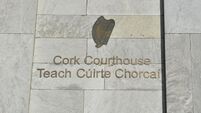Can false memories be good for us? UCC researchers launch €1.5m study

The UCC researchers will investigate whether creating false memories might actually serve useful purposes. Picture: iStock
A new University College Cork-led project will test a bold idea – whether false memories might actually be useful and even make us happier.
It aims to explore the potential upsides of something usually seen in a negative light and examine if false memories can be reliable, adaptive, and functional.















